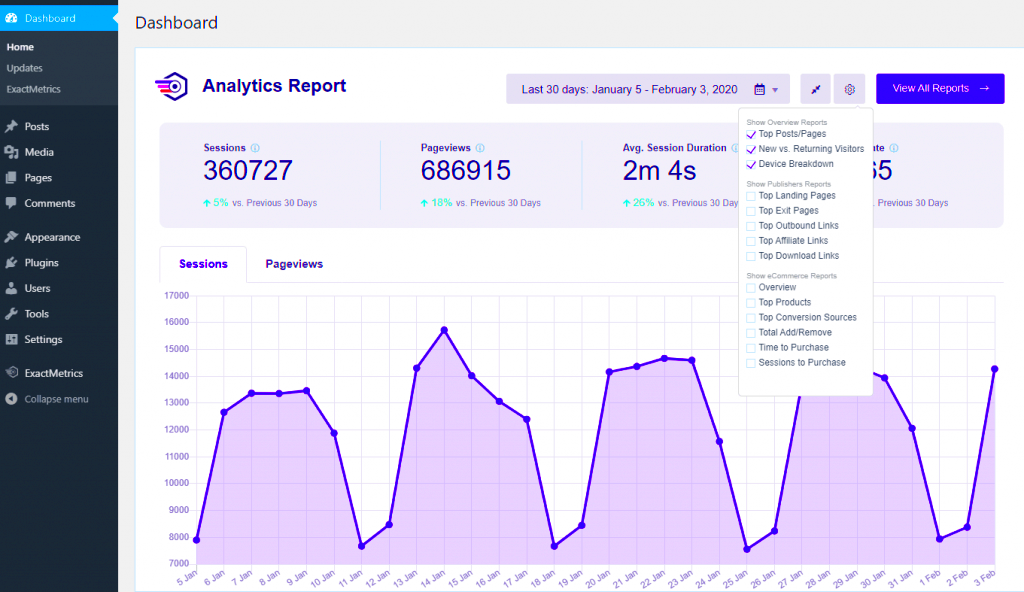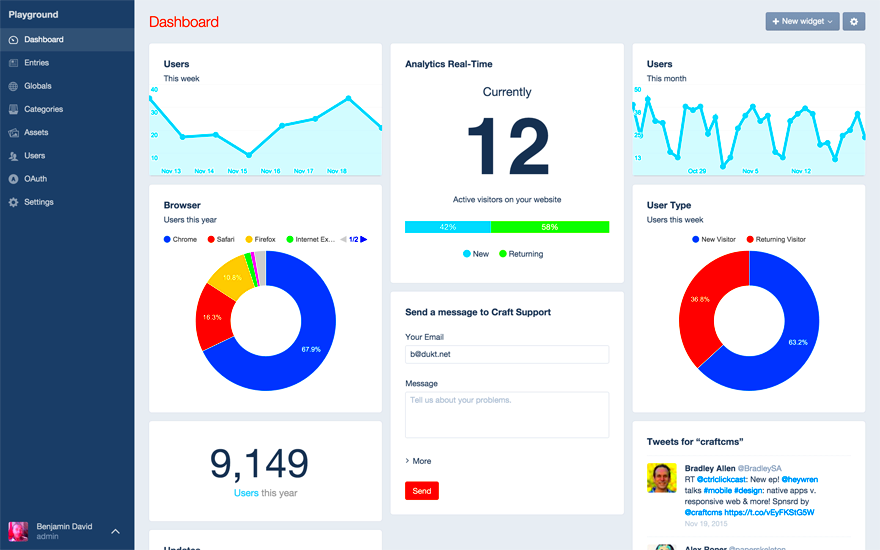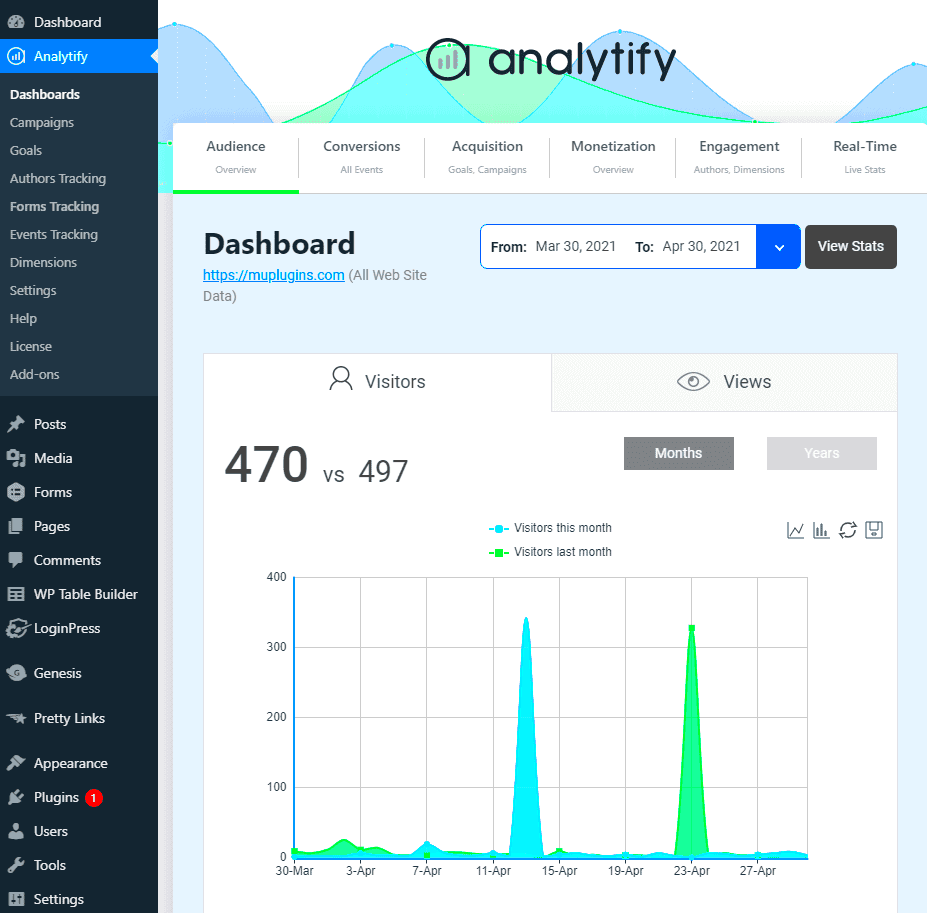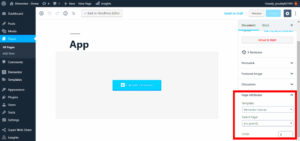When it comes to managing a WordPress site, having a clear picture of your analytics is essential. This is where reporting plugins come in handy. They help you track essential metrics, providing you with insights that aid in decision-making and optimizing your content. In this post, we’ll explore some of the top WordPress dashboard reporting plugins that can transform how you analyze your website’s performance, making it easier for you to monitor user behavior and enhance your strategies.
Why Use Reporting Plugins for WordPress?

Using reporting plugins for WordPress offers several advantages that can significantly improve your website management experience. Here’s why you should consider implementing one:
- Centralized Data: Reporting plugins consolidate all your website metrics into one dashboard, saving you the hassle of navigating multiple analytics tools.
- User-Friendly: Many of these plugins present information in easily digestible formats, such as graphs and charts, so even those without a technical background can understand the data.
- Customization: Most reporting plugins allow you to customize your dashboard, focusing on the metrics that matter most to you, whether it’s traffic sources, engagement rates, or conversion rates.
- Real-Time Analytics: Many of these plugins offer real-time data, ensuring you stay up-to-date with your website performance and can react promptly to changes.
- Actionable Insights: Beyond just providing data, many plugins analyze metrics to offer actionable insights that help improve your site’s effectiveness.
In summary, leveraging a reporting plugin can streamline your analytics process, providing you more time to focus on other aspects of your website and ultimately enhancing your online presence.
Key Features to Look for in Reporting Plugins

When diving into the world of WordPress dashboard reporting plugins, there are several key features that can transform raw data into actionable insights. Let’s take a look at what to keep an eye out for:
- User-Friendly Interface: A clean and intuitive interface ensures that even less tech-savvy users can navigate through their data without feeling overwhelmed.
- Customizable Dashboards: Look for plugins that allow you to customize your dashboard according to your specific needs. Whether you want to track website traffic, sales, or engagement metrics, having a tailored dashboard is crucial.
- Real-Time Analytics: Real-time reporting means you can track changes as they happen. This feature is essential for businesses looking to make quick decisions based on current data.
- Data Visualization: Graphs, charts, and other visualization tools make it easier to understand trends and outliers in your data. A plugin that excels in data visualization can be a game-changer.
- Multi-Source Integration: Your business is likely pulling data from various channels. Choose a plugin that can integrate data from social media, email marketing, and other platforms to give you a holistic view.
- Automated Reports: The ability to set up automated reports saves time and ensures you’re always updated without extra effort. Look for features that allow scheduling and emailing of reports.
- Custom Filters: Data segmentation makes analysis more meaningful. Ensure that your plugin allows you to apply custom filters to hone in on specific datasets.
With these features in mind, you’re more equipped to select a reporting plugin that not only meets your needs but also contributes to the growth and efficiency of your WordPress site.
Top WordPress Dashboard Reporting Plugins
Ready to elevate your analytics game? Here’s a selection of some of the top WordPress dashboard reporting plugins that are sure to impress:
| Plugin Name | Description | Key Features |
|---|---|---|
| MonsterInsights | A powerful Google Analytics plugin that helps you connect your site with Google Analytics seamlessly. |
|
| Google Analytics Dashboard Plugin for WordPress | This plugin integrates your Google Analytics with your WordPress dashboard, giving you easy access to vital stats. |
|
| WP Statistics | A self-contained analytics solution that provides comprehensive website statistics without relying on external services. |
|
| Analytify | This plugin turns Google Analytics reports into beautiful graphs and charts, making it easy to understand complex data. |
|
Choosing the right reporting plugin can make a world of difference in how you analyze and act on your website metrics. Each of these plugins offers unique features to suit various needs, so explore and find the one that fits you best!
1. MonsterInsights
When it comes to WordPress dashboard reporting plugins for analytics, MonsterInsights stands out as a top choice for many site owners. This powerful tool is designed to make Google Analytics a breeze for even beginners. With its user-friendly interface, you don’t need to be a tech wizard to understand your website’s performance metrics.
One of the standout features of MonsterInsights is its real-time stats. You can see the traffic on your website as it unfolds, which helps in making immediate marketing strategies. Want to know where your visitors are coming from or which pages they visit the most? MonsterInsights has you covered with detailed reports displayed directly on your WordPress dashboard.
### Key Features:
- Enhanced E-commerce Tracking: Perfect for online stores, allowing you to analyze your sales funnel.
- Custom Dimensions: Helps you track user interactions with events and enables you to create segments for analysis.
- Forms Tracking: Understand how effective your forms are and improve user engagement.
- GDPR Compliant: Rest assured that your analytical practices are in line with privacy laws.
The icing on the cake is that MonsterInsights offers pre-built reports that make data interpretation straightforward. You can customize various aspects to fit your analytical needs. In short, if you’re serious about understanding your website’s performance, MonsterInsights is a fabulous go-to option.
2. ExactMetrics
If you’re looking for a robust yet straightforward analytics solution, ExactMetrics might be just what you need. This powerful WordPress plugin seamlessly integrates with Google Analytics to provide comprehensive insights right from your dashboard. It empowers users to make data-driven decisions without diving into the complexities of Google Analytics.
What makes ExactMetrics particularly user-friendly is its setup wizard that simplifies the connection with Google Analytics. Not tech-savvy? No problem! In just a few clicks, you can have all your tracking set up, saving you valuable time and effort.
### Key Features:
- Smart Tracking: Automatically tracks user interactions like downloads, outbound links, and scroll depth.
- Custom Dashboard Widgets: Get important metrics showcased directly on your dashboard, making it easy to keep an eye on your stats.
- Enhanced E-commerce Reports: Offers detailed insights about your online store’s performance, including sales conversion insights.
- Content Performance Tracking: Understand which of your content is resonating with your audience the most.
Besides all these features, ExactMetrics prioritizes speed, ensuring that it won’t bog down your website’s performance. Users love its comprehensive documentation and active support community, making it easier to troubleshoot any issues. To summarize, ExactMetrics is an excellent choice for WordPress site owners who want to monitor their performance effortlessly.
3. WP Statistics
When it comes to understanding your website’s performance, you can’t overlook the value of solid reporting plugins. WP Statistics is a fantastic tool that offers an extensive array of features tailored for WordPress users who want valuable insights without the complexity of traditional analytics tools.
This plugin provides real-time statistics about your visitors, including page views, referrer sites, and unique visitors. The beauty of WP Statistics is its simplicity—it’s easy to install and even easier to interpret. You don’t need to be a tech whiz to make sense of the data provided.
Here are some key features that make WP Statistics stand out:
- Real-Time Data: Get immediate insights into who’s visiting your site and what pages they’re viewing.
- Privacy Friendly: All the collected data is stored on your server, complying with privacy standards like GDPR.
- Diverse Reporting Options: Access weekly, monthly, and yearly reports that can help you identify trends over time.
- Geolocation Tracking: See where your visitors come from down to the city level.
Another noteworthy aspect is the customizable dashboard, allowing you to display the metrics that matter most to you. You can even integrate it with your existing WordPress dashboard for added convenience. If you’re on the hunt for a straightforward yet effective analytics solution, consider giving WP Statistics a whirl!
4. Google Analyticator
For those who are keen on leveraging Google’s powerful analytics capabilities while maintaining a smooth WordPress experience, Google Analyticator is a top contender. This plugin seamlessly integrates Google Analytics into your WordPress dashboard, making data collection and reporting a breeze.
Google Analyticator offers a user-friendly interface that minimizes the technical complexities often associated with Google Analytics. Once installed, you can configure the settings to track page views, referrals, and other essential metrics, directly from your WordPress admin area. It’s perfect for users who want comprehensive analytics without diving into the Google Analytics app.
Here are some highlights of what Google Analyticator brings to the table:
- Easy Setup: Simple step-by-step guides allow you to install and configure the plugin within minutes.
- Custom Tracking Options: Fine-tune what you want to track, whether it’s specific pages or entire categories.
- Visual Reports: Receive easy-to-read reports that can help you grasp your site’s performance at a glance.
- Enhanced E-commerce Tracking: If you’re running an online store, this plugin can provide insights into your sales transactions.
Moreover, Google Analyticator also offers features like event tracking and conversion tracking, making it a comprehensive choice for marketers and website owners alike. If you want to harness the power of Google Analytics but love the convenience of WordPress, don’t hesitate to check out Google Analyticator—you might just find it to be the perfect fit!
5. Jetpack by WordPress.com
If you’re looking for a comprehensive solution that goes beyond just analytics, then Jetpack by WordPress.com is the plugin to consider. This versatile tool is a powerhouse that encompasses a wide array of features. From performance enhancements to security and marketing tools, Jetpack aims to be your all-in-one plugin for website management.
When you install Jetpack, you gain access to a robust site stats dashboard that gives you a snapshot of your site’s performance. Here’s what you can expect:
- Visitor Stats: You get detailed insights into your daily, weekly, and monthly visitors.
- Traffic Sources: Understand where your traffic is coming from, whether it’s search engines, social media, or direct visits.
- Popular Posts: Know which posts are attracting the most views, helpful for optimizing future content.
- Performance Monitoring: Keep an eye on your website’s performance, including load times and downtime alerts.
More than just analytics, Jetpack offers features like social sharing, automatic backups, and even security protections like spam filtering and brute force attack protection. All these features make the Jetpack plugin a fantastic choice for WordPress users seeking both analytics and additional functionalities.
However, it’s worth noting that some of Jetpack’s more advanced features require a premium subscription. If you’re not planning to pay, you might miss out on some of its most powerful tools.
6. Analytify
For those who want a user-friendly and visually appealing way to monitor their Google Analytics data, Analytify comes highly recommended. This plugin takes the vast array of metrics offered by Google Analytics and simplifies them, offering a clean dashboard directly within your WordPress admin area.
One of the standout features of Analytify is its straightforward interface, making it accessible for users who may not be data-savvy. Here’s a quick look at some of its key features:
- Real-time Statistics: See who’s currently on your site and what they’re doing.
- Campaign Tracking: Easily track your marketing campaigns and see how they perform without diving deep into complex reports.
- Custom Dimensions: Customize what metrics are important to you and view them right on your WordPress dashboard.
- Social Media Tracking: Keep tabs on how your social media traffic is converting on your site.
Another great aspect of Analytify is its in-depth reporting tools. You can opt for comprehensive reports based on individual posts or pages, making it easier to identify what content resonates most with your audience. Plus, with additional features like shortcode integration, you can display metrics in any post or page, creating an interactive experience for your visitors.
While Analytify offers a free version, you can unlock even more advanced features with the premium version, including enhanced reports and tracking integrations for eCommerce sites. Overall, it’s a fantastic choice for anyone wanting to tap into Google Analytics without feeling overwhelmed!
11. Comparison of the Top Plugins
When it comes to selecting a WordPress dashboard reporting plugin for analytics, the choices can feel overwhelming. Each plugin comes with its own unique features and capabilities. Below, we’ll compare some of the top plugins currently available, helping you to make an informed decision.
| Plugin Name | Key Features | Pricing | User Ratings |
|---|---|---|---|
| MonsterInsights |
|
$99/year | 4.6/5 |
| ExactMetrics |
|
$99/year | 4.5/5 |
| WP Google Analytics Events |
|
Free | 4.4/5 |
| Analytify |
|
$39/year | 4.4/5 |
In summary, while all these plugins offer great insights, it’s crucial to align their capabilities with your specific needs. Take time to explore their offerings, and don’t hesitate to read user reviews for deeper insights!
12. How to Choose the Right Plugin for Your Needs
Choosing the right WordPress dashboard reporting plugin can be a game-changer for your website. With so many options out there, where do you even start? Here’s a friendly guide to help you navigate this decision.
- Identify Your Goals: What do you want to achieve with analytics? Be it tracking user behavior, measuring conversions, or checking traffic sources, clarifying your goals is paramount.
- Assess Key Features: Focus on what features matter most to your objectives. Are real-time stats important to you? Or maybe you need in-depth reporting options? Make a shortlist based on essential functionalities.
- Ease of Use: You want a plugin that is user-friendly. Look for intuitive dashboards and straightforward setup processes. If you’re not tech-savvy, prioritize plugins with better usability.
- Support & Documentation: Quality customer support can save a lot of headaches. Check if the plugin offers responsive support and in-depth documentation.
- Budget Considerations: Always align your choice with your budget. There are excellent free plugins available, but premium options sometimes offer superior features that might be worth the investment.
Ultimately, the best plugin for you will depend on your individual needs and circumstances. Take your time, weigh your options, and you’ll find the perfect fit for your WordPress analytics journey!
Conclusion
In our journey through the top WordPress dashboard reporting plugins for analytics, we’ve explored a variety of tools that can help you better understand your website’s performance. These plugins not only provide essential data but also transform that data into insightful visualizations, making your analytics more accessible and actionable. From comprehensive reports to user-friendly interfaces, each plugin has its own unique set of features tailored to different needs and preferences.
Whether you’re a seasoned website owner or a newbie, having the right reporting plugin can make a world of difference. With features like real-time tracking, social media analysis, and traffic source breakdowns, these tools empower you to make informed decisions that drive growth and enhance user experience. Remember, the ultimate goal of analyzing your data is to identify trends, understand your audience, and adjust your strategies effectively. By leveraging the insights gained from these plugins, you can fine-tune your content, marketing efforts, and overall web strategy.
So, take the time to explore these plugins further and choose the one that fits your specific objectives best. The investment you make in understanding your analytics can lead to exponential growth and success for your WordPress site in the long run. Happy tracking!
Call to Action: Share Your Experience
We’d love to hear from you! Have you used any of the WordPress dashboard reporting plugins mentioned in this post? Your insights can be incredibly valuable for others considering their options. Here are a few questions to get your thoughts flowing:
- What reporting plugin do you use and why?
- What features do you find most beneficial?
- Have you encountered any challenges while using these plugins?
- How has the plugin you chose impacted your website’s performance?
Your feedback can help fellow WordPress users make informed choices about which analytics tools are worth their time and investment. Please take a moment to share your experience in the comments section below. Together, we can build a community that thrives on shared knowledge and mutual growth!



